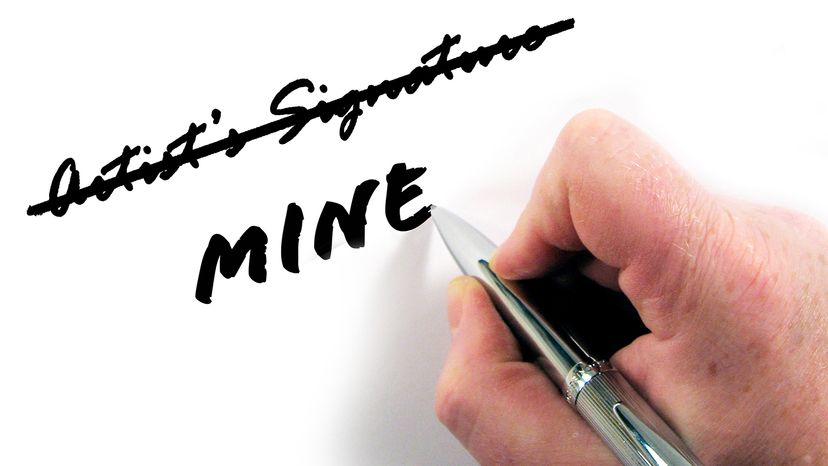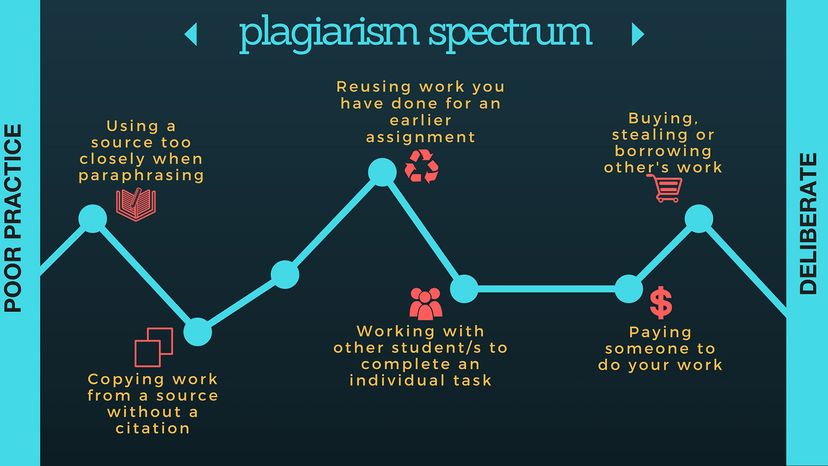If Merriam-Webster is your definition of definitions, then plagiarism is, in its verb forms:
transitive verb
: to steal and pass off (the ideas or words of another) as one's own : use (another's production) without crediting the source
intransitive verb
: to commit literary theft : present as new and original an idea or product derived from an existing source
For an example, we could simply have copied those definitions (which, in fact, we did), not changed a word (ditto) — not even the format (yep) — and not credited Merriam-Webster. But then, of course, we'd be flat-out plagiarizing, or at the very least trampling on the line between plagiarism and safer, albeit sleazy word-cribbing. Wisely, we attributed the words to Merriam-Webster. We even provided a link.
Plagiarism is not always that cut-and-paste easy. The legal definition — this taken from Cornell Law School's Legal Information Institute — is, as legalese often is, murky:
Deliberately passing off somebody else's original expression or creative ideas as one's own. Plagiarism can be a violation of law if copyrighted expression is taken. Often, however, plagiarism does not violate any law, but instead simply marks the plagiarist as an unethical person in the political, academic or scientific community where the plagiarism occurs.
So then, what about taking information from someone else, twisting a few words around, maybe changing a name or two, and passing it off as your own? How much do you have to change to avoid plagiarism? How much "borrowing" is too much? Where do you draw the line?
"It's always OK to use the ideas or the words of somebody else. That's not the problem. The problem is acknowledging your sources," Rettinger says. "Different disciplines and different situations have different expectations of what's yours and what's shared."
Lawyers, for another example, can use similar wording in legal briefs — maybe even the exact wording — but that may be more generally acceptable; it is, Rettinger says, shared language in their profession. But what about scientists, or researchers borrowing wildly from another paper that was based on an originally researched study?
Or this example from journalism: A big news site, say, taking chunks of a story reported and written by another site. If it's a 1,000-word article done by Site A, and Site B uses 800 words of it verbatim, is that OK, even if Site B credits Site A? Is that plagiarism? Can we agree that, at least, it's pretty lame?
"It seems to me more and more mainstream sites are doing it," Bailey says. "I kind of expect it from Johnny Q Snapchat Blogger or whatever. But when I see a mainstream website doing it, I get very worried."
The point is, it's hard to say sometimes what is and what isn't. Oftentimes, the plagiarizer and the one who is ripped off don't see eye to eye.




